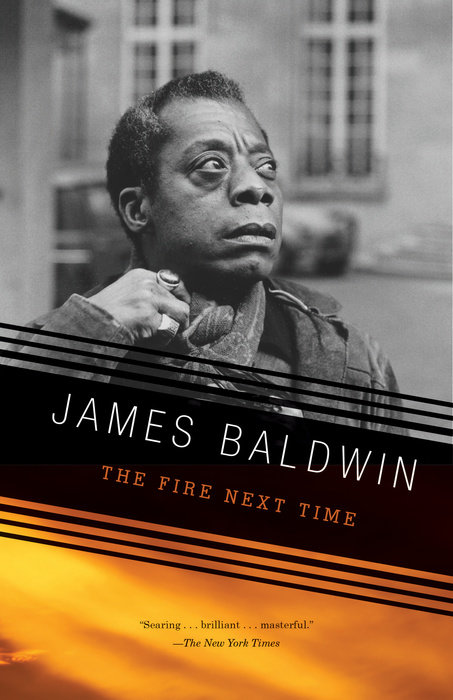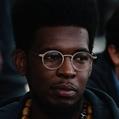jacky reviewed The Fire Next Time by James Baldwin
A Strong Case for America's Recognition
4 stars
The opening letter to his nephew, “My Dungeon Shook”, was a pretty heart warming one. He was definitely aiming to both shield and arm his nephew from the fallacy of the crafting of the United States. I found it hard for him to ask for his nephew to keep love in his heart on the heels of the founding of the country. This is during a time where police were more than eager to beat up and kill Black people. Baldwin found the courage – this is what I have to gather from his language – to inform his nephew that his life is his own and not what then-society would define it to be. I wrestled with this but I understand what he was going for. He did not want his nephew’s heart to be both afraid and hardened at such a young age. I do appreciate that he …
The opening letter to his nephew, “My Dungeon Shook”, was a pretty heart warming one. He was definitely aiming to both shield and arm his nephew from the fallacy of the crafting of the United States. I found it hard for him to ask for his nephew to keep love in his heart on the heels of the founding of the country. This is during a time where police were more than eager to beat up and kill Black people. Baldwin found the courage – this is what I have to gather from his language – to inform his nephew that his life is his own and not what then-society would define it to be. I wrestled with this but I understand what he was going for. He did not want his nephew’s heart to be both afraid and hardened at such a young age. I do appreciate that he was honest about the danger that white people have found themselves in. But as I’ve noted in my copy, he’s better than me because I could never. The following letter read more like the summation of a few journal entries from his life. From his encounters with his father to Elijah Muhammad of the Nation of Islam, I found the way he kept weaving between these experiences to be telling. He was aiming to show how the cyclic state of Black people were trapped in a need to find guidance. This same seeking of guidance was also building to a climax (of many forms). His early experiences of the block (as I’ll define it from my own experience) remind me of a lighter experience of what I’ve seen in Brooklyn growing up and what my parents vigilantly shielded me from. The way that his community seemed on the verge of constant decay countering the vibrancy he felt when he got more engaged in the ministry of his church showed how the importance of a community in building self-esteem. However, if the community itself is built on lies or misdirection, that self-esteem will immediately buckle under the lack of integrity being poured into people, which it was clear to Baldwin. That lack of integrity wasn’t something that ailed him (at least not heavily) because he was able to use that courage to stand up to his father’s constant disrespect (though futile). He states, “neither civilized reason nor Christian love would cause any of those people to treat you as they presumably wanted to be treated; only the fear of your power to retaliate would cause them to do that, or to seem to do it, which was (and is) good enough”. This statements echoes the fear of the state of nonviolence of Black people in America and something he was teasing at throughout this book. It came to be more clear when he finally saw Elijah after being invited to his home. Another point that rings to this day is Baldwin’s notice of the fact that many Black people in America do not have the space to read. At the time, I’d imagine literacy rates were a lot lower than we were today for Black people, which, again, I can’t imagine is any higher. He says, “And they didn’t even read; depressed populations don’t have the time or energy to spare. The affluent populations, which should have been their help, didn’t, as far as could be discovered, read, either – they merely bought books and devoured them, but not in order to learn: in order to learn new attitudes”. This reads as an indictment of the upper-middle class Black folks who tend to educate themselves but use it solely for class mobility and decor. This is a trait that remains true to this day. He had a fear of being associated with radicals, which is ironic given how radical his content could have been considered during his time. I guess he merely saw himself as existing in his truest self. Something I found compelling was his general rejection of European-centric ideals in his saying of the following: “I am far from convinced that being released from the African witch doctor was worthwhile if I am now – in order to support the moral contradictions and spiritual aridity of my life – expected to become dependent on the American psychiatrist. It is a bargain I refuse. The only thing white people have that black people need, or should want, is power – and no one holds power forever”. This came to be interesting given his inherently sympathy for white people – he saw them as merely misguided and lost in their own humanity. That makes me believe that he also saw it possible for a reckoning of their souls and identities to be possible when it came to the time for some sort of revolution. I’d like to believe that but to close it as he did, the next time Black people revolt, there will definitely be fire.

